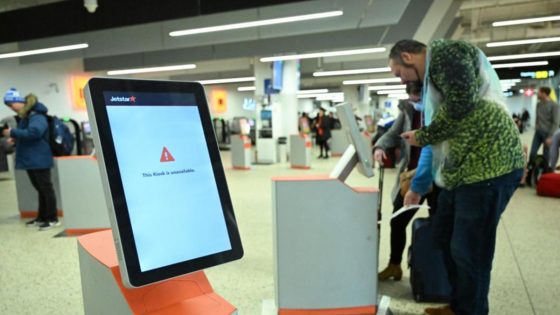A federal judge on Monday temporarily blocked Iowa from enforcing a new law that makes it a state crime for someone to enter Iowa after being deported or denied entry into the United States. The ruling comes amid a national push by statehouse conservatives to assert authority over illegal immigration, which has long been the domain of the federal government.
Iowa is among a few Republican-led states that have enacted a form of state-level immigration enforcement this year, infuriating Biden administration officials who have described the laws as unconstitutional overreach. Iowa officials vowed to appeal the judge’s ruling.
Immigration has become a top issue in this year’s presidential campaign, and federal authorities have seen a surge in migrants crossing the U.S.-Mexico border. Many states with Republican governors, including Iowa, have also sent National Guard troops to Texas to assist with border security.
“President Biden and his administration have failed to enforce our immigration laws and, in doing so, have compromised the sovereignty of our nation and the safety of its people,” Gov. Kim Reynolds of Iowa said in a statement when her state’s legislature passed the measure. “States have stepped in to secure the border, preventing illegal migrants from entering our country and protecting our citizens.”
After Ms. Reynolds, a Republican, signed the bill into law, the Justice Department sued and asked a federal judge to step in before the measure is to take effect on July 1.
“Iowa cannot disregard the U.S. Constitution and settled Supreme Court precedent,” Brian M. Boynton, the head of the Civil Division of the Justice Department, said in a statement when the lawsuit was filed. “We have brought this action to ensure that Iowa adheres to the framework adopted by Congress and the Constitution for regulation of immigration.”
Efforts by conservative states to carve out a role in immigration enforcement and resistance to those efforts from the Biden administration have exposed the enduring tension in the balance of power between federal and state government. The legality of the state immigration laws could eventually be decided by the U.S. Supreme Court.
Federal judges have temporarily blocked enforcement this year of a Texas law that allowed police officers to arrest and expel migrants, and a portion of a Florida law that made it a crime to transport into the state anyone who lacked lawful immigration status. The Justice Department has also sued over a law passed in Oklahoma that makes it a state crime for a foreigner who did not legally enter the United States to be in Oklahoma.
Source Agencies




